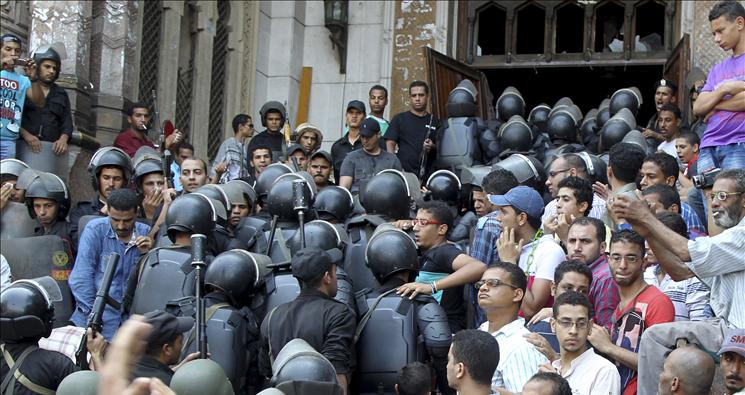It Is Possible to Put Effective Conditions on Aid
Like Rich, I read Bret Stephens’ Wall Street Journal piece and agree that he makes a powerful argument. However, while the Egyptian army is the obvious (and so far effective) firewall against the Muslim Brotherhood, we can and should put effective and absolute conditions on further aid. Foremost among them: No aid if the Christian community is left unprotected.
Let’s be clear, protecting Christians is not necessarily the natural desire of Egyptian military leadership. The Muslim Brotherhood attacks Christian churches not just out of vengeance but also as part of an effort to create a Christian/Muslim conflict that they believe could transform them back into the champion of the masses. In other words, they think the attacks will be popular. Let’s not forget, the even more extreme Salafists still represent millions of Egyptians.
For a very long time our “allies” in the Middle East have, quite simply, played us. One of our primary aid recipients, Pakistan, has even fired on our own troops while feeding at the American trough (and that’s leaving aside the open question of whether Pakistani officials knew Osama bin Laden’s whereabouts). Through it all, we’re consistently told that our aid is the only thing preventing a descent into ever-greater chaos, and we can’t demand too much from our friends.
Not true.
Yesterday I posted some basic statistics about the Egyptian military, noting its overwhelming reliance on advanced American equipment — equipment that needs spare parts, maintenance, and continual upgrades. In short, they need us in ways one can’t easily measure in dollars, and replacing or repairing that equipment is more difficult than merely dialing up Vladimir Putin, pulling out Saudi Arabia’s credit card, and purchasing Su-35s (though Egypt may certainly threaten such an action).
In Iraq, those of us on the ground often grew weary of the constant wailing and moaning from our Iraqi “partners” who balked at each and every condition we placed on aid, who sometimes refused even to roll out of the gate until we met their specific terms and conditions for assistance. Eventually, however, strong-willed commanders increasingly caught on to the game, realized they needed us more than we needed them, and — finally — began to make real progress.
Is it too much for the source of 25 percent of Egypt’s defense budget and all of its most advanced weapons to demand that a small fraction of this awesome power — provided at American taxpayer expense — be used to stop mass-scale religious persecution? Yes, the Egyptian military is the best hope for defeating the Muslim Brotherhood, but defeating the Brotherhood as churches burn is a pyrrhic victory, at best. The choice is not between defeating the Brotherhood or protecting Christians; it’s both — defeat the Brotherhood and protect Christians.
This afternoon, I was on our ACLJ radio program, Jay Sekulow Live, with Jay and Jordan Sekulow, and we were shocked at the wave of phone calls from Coptic Christians describing the desperate plight of their Christian friends and relatives — hiding in darkened homes, fleeing burning churches, and witnessing horrific atrocities. Without exception, they said the Egyptian army offered their best hope for safety. We must exercise our considerable influence to make sure the army does not betray their trust.
